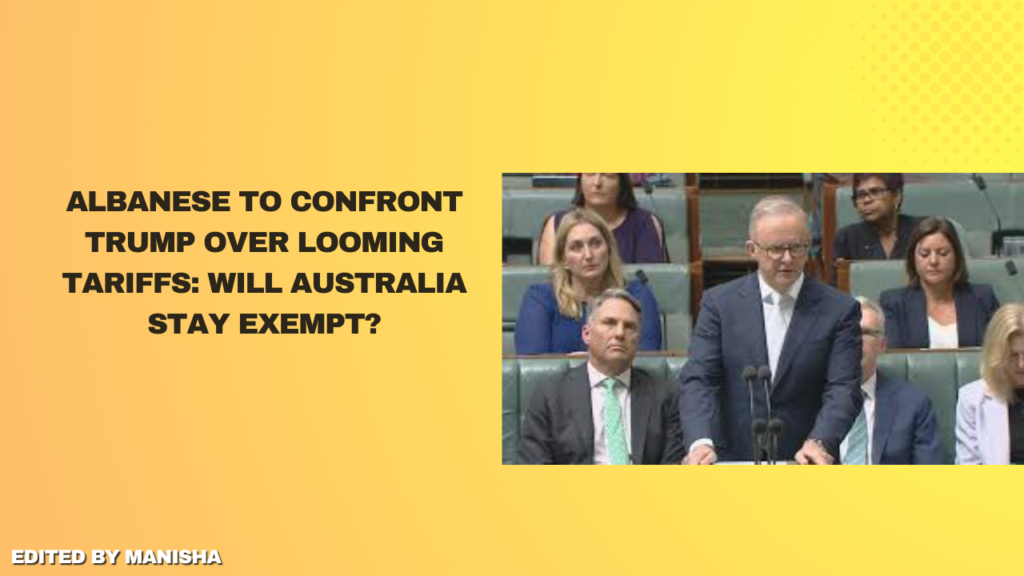
Prime Minister Anthony Albanese is set to have an urgent discussion with US President Donald Trump, as he prepares to introduce sweeping 25% tariffs on steel and aluminium imports. In a statement to the House, Albanese emphasized that the Australian government would continue advocating for an exemption from these tariffs. “I have a scheduled conversation with President Trump and will update the House and the Australian people following that discussion,” he said. “The Australian people know I will always act in their best interests and stand up for Australia.”
This will be Albanese’s first direct conversation with Trump since briefly congratulating him on his election victory. The Australian government is already under pressure to ensure the country remains exempt from these tariffs, similar to the outcome in 2018 when Australia, alongside countries like Canada, Mexico, and the UK, was excluded from new steel and aluminium tariffs imposed by the US.
In 2023, Australia exported 223,000 tonnes of steel and 83,000 tonnes of aluminium to the United States. Albanese mentioned having met with Rio Tinto’s global CEO that morning and pointed out that Australian companies have made significant investments in the US steel sector, contributing to thousands of jobs both in the US and Australia. Senior government figures, including Deputy Prime Minister Richard Marles, who recently visited Washington, have been working closely with the Trump administration to ensure Australia’s trade interests are protected.
Trade Minister Don Farrell reiterated that the government is actively advocating for open and fair trade, particularly for Australian steel and aluminium in the US market. “Our bilateral economic relationship is mutually beneficial, with Australian exports creating thousands of well-paying jobs in America. These exports are also crucial to our shared defense interests,” Farrell said, referencing the use of Australian steel in the construction of US Navy submarines, including the Virginia-class nuclear submarine Australia will acquire under the AUKUS defense agreement.
Labor figures have noted that it took months of diplomatic effort under the Turnbull government to secure the 2018 steel exemption, while opposition and industry groups are calling for swift action. The Coalition sees the new tariffs as a significant test for the Albanese government and its ability to strengthen ties with the new US administration, including Australian Ambassador to the US, Kevin Rudd.
Nationals leader David Littleproud believes Australia has a strong case for an exemption and questions whether the government can effectively present it. “We have a compelling argument, particularly with our recent $500 million commitment to the AUKUS deal,” he said, highlighting Australia’s contributions to the US in the defense pact.
The deputy prime minister expressed confidence in Rudd’s abilities, noting his diplomatic expertise and leadership. “He brings tremendous energy and gravitas to the role. Just a few weeks ago, he secured quick meetings with key US officials in foreign affairs and defense,” Marles said.
Innes Willox from the Australian Industry Group stated that the tariffs were expected, but warned that it was crucial to avoid them. He expressed concern that this announcement came right after Marles’ visit to Washington, where Australia committed billions of dollars for the AUKUS agreement. “The government must act swiftly to protect Australian industries from the fallout of an escalating global trade war,” Willox said.
Australia’s steel and iron exports to the US were valued at $237 million in 2023, with BlueScope, Australia’s largest steel manufacturer, playing a significant role. BlueScope highlighted its ongoing investments in the US, noting that it has spent $2 billion expanding its operations there and now employs 4,000 American workers. The company expressed its commitment to working with both the US and Australian governments as the tariff situation develops.
Australia has benefited from a free trade agreement with the US for over 20 years, and the vast majority of trade between the two nations is currently tariff-free. However, the Australian government has been highlighting its trade deficit with the US since Trump’s election, with Australia exporting about $33 billion to the US in 2023 and importing approximately $65 billion.